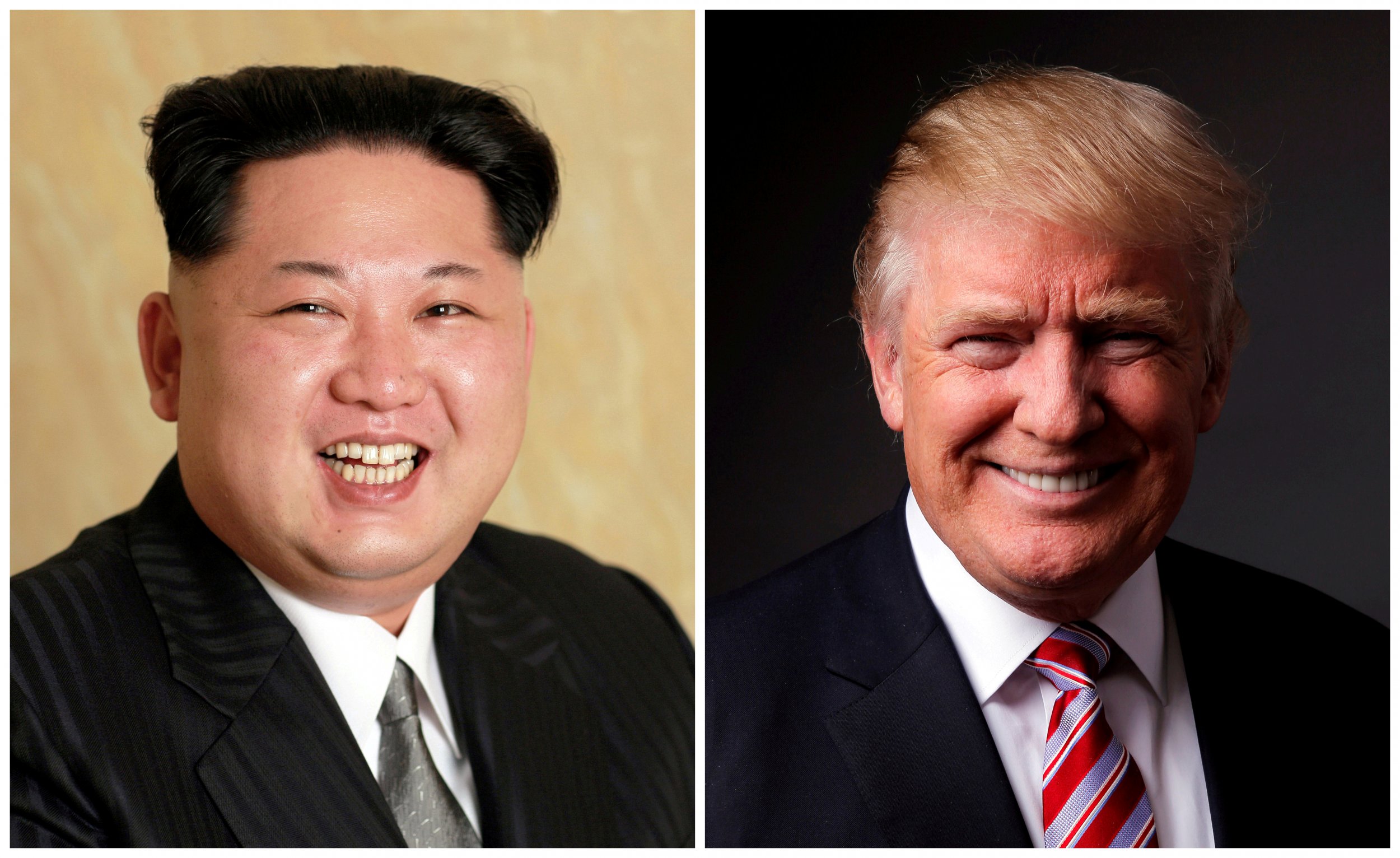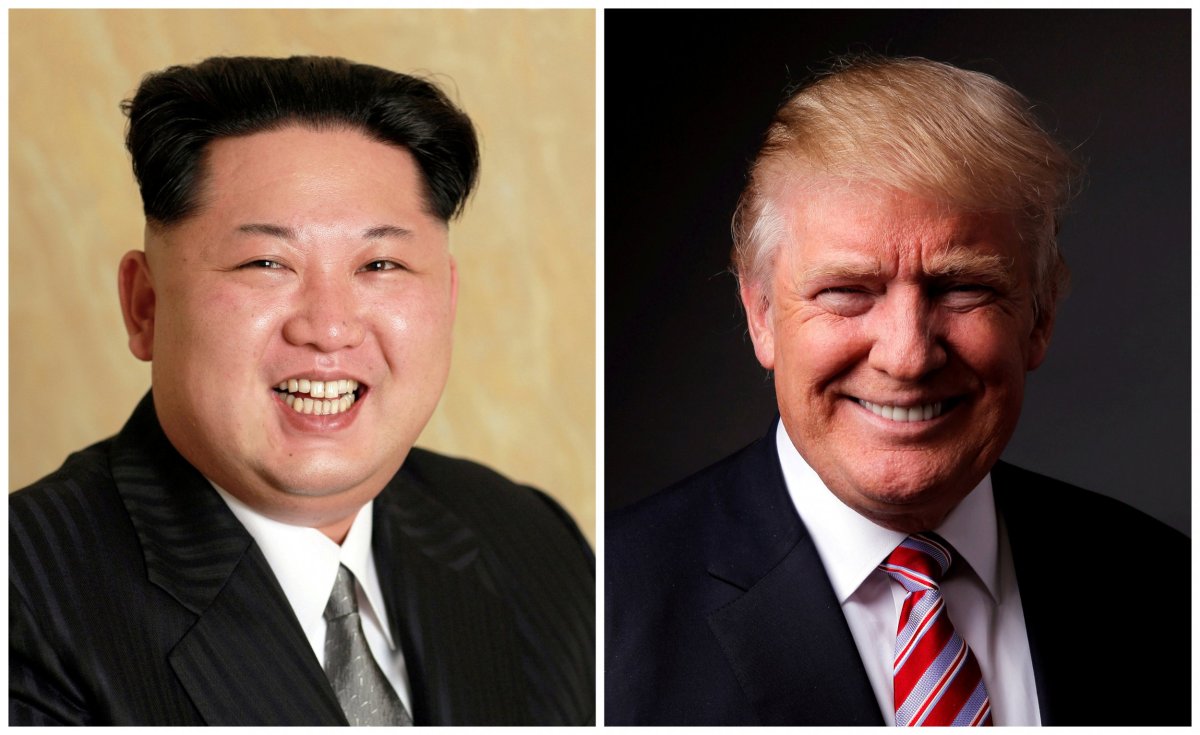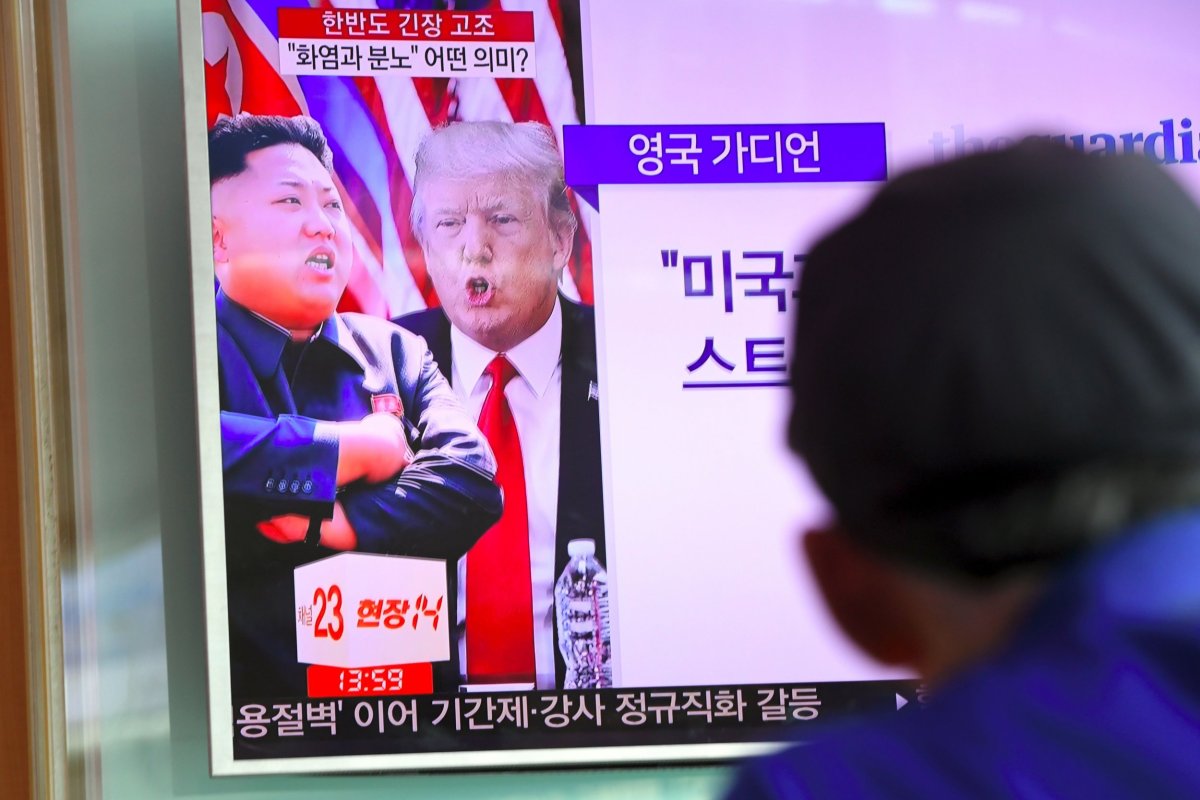
Kim Jong Un is the young authoritarian supreme leader of North Korea; Donald Trump the elderly democratic head of the United States. Despite their very public war of words over Pyongyang's nuclear missle program, the two men actually have quite a bit in common.
Both came to power with little to no prior experience and, since taking office, have attempted to make up for that inexperience by attempting to boldly assert themselves to skeptical audiences at home and abroad. The ensuing drama has pitted the dueling nuclear-armed egos against each other, and one appears to have gained the upper hand.
At age 27, Kim became the world's youngest head of state, following his father's death in 2011. Unlike Kim Jong Il, Kim Jong Un didn't have decades to train for a position that placed him in charge of one of the most rigid, unforgiving political systems on the planet.
Kim, now believed to be 33 years old, is no longer an unknown simply filling his father's shoes, nor is he technically even the youngest world leader. After making economic reforms in an attempt to rescue the country's failing economy, and violently purging some of his father's men as a message to his detractors, Kim appears to give North Korea what it has never had before: intercontinental ballistic missiles (ICBMs) capable of delivering nuclear warheads to the U.S.
Related: North Korea's Kim Jong Un Doesn't Want Nuclear War With The U.S., Just 'Maximum Drama'
This has infuriated Trump, the oldest U.S. leader to take office and the first to assume the role without any prior political or military experience. But like those who served before him and most other U.S. officials, Trump has demanded that North Korea abandon its weapons of mass destruction, which North Korea has long argued are necessary to guard its sovereignty.
Trump's transition to power has been far less smooth than Kim's. Already facing accusations that he colluded with a foreign power to take the presidency, Trump's legitimacy has been further tested by an ongoing stream of leaks and high-profile resignations and dismissals. Perhaps one of his greatest challenges, however, has been his own spontaneity, a trait that experts say deeply contrasts with Kim's calculated approach to leadership.
"Kim Jong Un does seem to have a better grasp of what his role is. There's a whole strategy there, an underlying rationale, even if you don't agree with it," Jenny Town, assistant director of the U.S.-Korea Institute at Johns Hopkins University's School of Advanced International Studies, tells Newsweek.
"If Trump really meant for things to turn out the way they did, then it's a bad strategy," she adds.

While Trump vowed to prevent Kim from testing an ICBM as far as back as December, a month before being sworn in, the real estate tycoon-turned-president really turned the heat up on his North Korean rival in April. The same day he launched a surprise cruise missile attack on the forces of Syrian President Bashar al-Assad, a Russian ally U.S. accused by the U.S. of conducting a chemical attack on civilians, Trump threatened to next take on North Korea over its desire to conduct a sixth nuclear weapons test. When North Korea tested its first ICBM in July and a second later that same month, Trump responded with an ominous warning.
"North Korea best not make any more threats to the United States. They will be met with fire and fury like the world has never seen," Trump told reporters on a New Jersey golf course earlier this month.
Not to be outdone, North Korea's military revealed a detailed plan to strike the U.S. island territory of Guam, which hosts key Air Force and Navy bases. After further brinkmanship between the two leaders, North Korea's state-run media showed footage of Kim himself reviewing the plans. But the leader said he would not attack unless the U.S. struck first, effectively ending an imminent missile scare.
While a number of Western media outlets portrayed this as a retreat on Kim's part, North Korea expert Michael Madden says it actually boosted Kim's credibility on the international stage.
"This allowed Kim Jong Un to portray himself as the more experienced leader," Madden, a visiting scholar at the U.S.-Korea Institute, tells Newsweek, adding that Kim also appeared more likely to defer to his advisers than Trump.
"Who would have thought that when we said 'let cooler heads prevail,' it would be the 33-year-old leader of the DPRK?" said Madden, referring to North Korea's official title: the Democratic People's Republic of Korea.
Trump hailed Kim's "very wise and well-reasoned decision" in a tweet Wednesday, but Town and Madden agree that Kim has come out stronger from the latest crisis. While Trump fired off a number of statements that were widely challenged at home—including the claim that he had improved the country's nuclear arsenal and that U.S. missiles were "locked and loaded"—Kim remained largely silent and delegated his words to lower-level outlets of his government's propaganda, allowing ample room for de-escalation. Even his strategic missile force's Guam attack plan included language that offered North Korea a way out from actually going through with it.
"Kim has been very careful with his words as not to back himself into a corner by shooting from the hip, like the Trump administration," Town says.

Trump's North Korea strategy has confused some and frustrated others, including U.S. ally South Korea. Town and Madden, both frequent contributors to North Korea monitoring group 38 North, say the past two administrations did not fare much better. Madden argues that Trump's attempts to "upset the paradigm" of U.S. foreign policy has produced a greater diversity of opinion in the White House. He also believes Trump's cavalier approach to politics helped him get elected. Despite negative media portrayals of the billionaire mogul on the campaign trail, evidence shows Trump and his companions ran a calculated, strategic campaign to defeat Hillary Clinton, a close ally of former President Barack Obama and a former first lady with extensive legal and political experience.
Kim has been the subject of much mockery in the Western media, where he is often portrayed as an irrational buffoon. But others argue that Kim has dismissed his father's more military-oriented "back-channels" approach to ruling and has tried to restore the official political system his grandfather, North Korea's founder Kim Il Sung, had intended for the country. In his own bloody campaign to "drain the swamp," Kim executed a number of officials clinging to mostly ceremonial posts, including his own uncle, Jang Song Thaek. Since then, he appears to have mastered a balance of brutality and moderate reform as a strategy to consolidate power internally, while continuing to develop nuclear weapons to deter foreign invasion.
"I think a lot of public discourse discounts North Korea as a real country with real security concerns and real leadership," Town says.
"Just because you don't like the decisions he makes, doesn't make him irrational."
Uncommon Knowledge
Newsweek is committed to challenging conventional wisdom and finding connections in the search for common ground.
Newsweek is committed to challenging conventional wisdom and finding connections in the search for common ground.
About the writer
Based in his hometown of Staten Island, New York City, Tom O'Connor is an award-winning Senior Writer of Foreign Policy ... Read more
To read how Newsweek uses AI as a newsroom tool, Click here.








